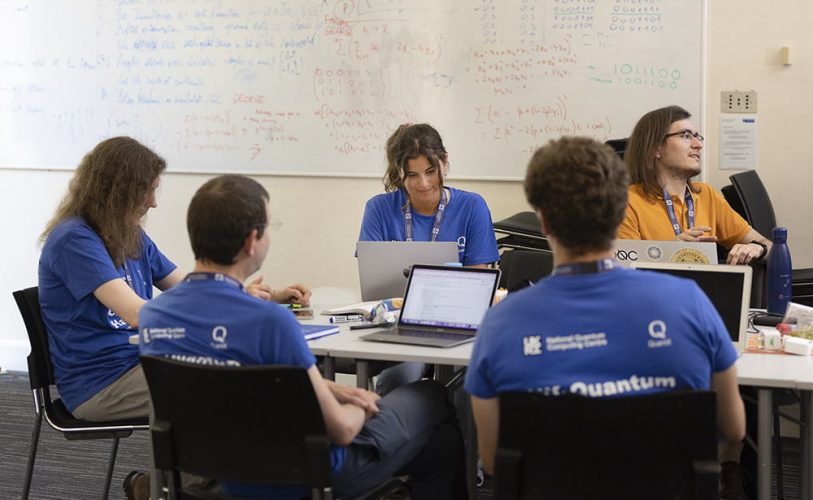Key Takeaways from the UK’s First Quantum Computing Hackathon

This year marks the UK’s first quantum computing hackathon. Hosted by the National Quantum Computing Center (NQCC) in collaboration with the non-profit organization QuantX, nine teams of students and early-career professionals collaborated to devise quantum computing solutions to real-world problems. The hackathon ran for two days, with periods of networking and workshopping. Technology provided by key quantum computing companies like IBM, AWS, and Oxford Quantum Circuits helped to offer exclusive hands-on learning as well. With this first hackathon a clear success for the UK, more countries and companies are eyeing similar events to help grow their own quantum ecosystems.
Hackathon Help
Hackathons are becoming increasingly popular events in technology industries like quantum computing and software development, mainly because they are so collaborative. A hackathon is simply a creative problem-solving event, usually focused on computer coding. While many hackathons in the past have dealt with unhealthy competitive cultures, more recent hackathons focus on positive collaboration. These events usually end with a team being declared a “winner” and receiving a monetary prize.
Europe’s First Quantum Computing Hackathon
While this is the UK’s first quantum computing hackathon, other parts of Europe have already held similar events. “The very first [quantum] hackathon was in Paris in 2021,” explained Elvira Shishenina, the President of QuantX. “We were very happy to see the enthusiasm of our partners from different ecosystems brought to this competition because it’s a nice way to connect people.”
The 2021 Paris hackathon included two phases, a technical phase, and a business phase. The technical phase involved the teams working with a key business and a key quantum computing company to solve a fundamental problem posed in a case study. After a few days of the technical phase, teams transitioned to the business phase, where they pitched their solutions to a panel of judges. The judges not only evaluated the feasibility of the solution, but also the possible business benefits it could give to a company. In the end, the winning team was decided and awarded. According to Shishenina, there were over 150 participants in the Paris 2021 hackathon. During this event, Shishenina also saw various students become hired by quantum companies, as well as other companies set up future collaborations.
The First Quantum Computing Hackathon in the UK
Unlike the Paris hackathon, the 2022 UK quantum computing hackathon only had a technical phase. Teams finished the two-day hackathon by running their newly developed quantum algorithms on quantum hardware provided by partners. Other teams tested their proposed solutions on quantum simulators. Mentors from some of the key organizations helped guide the teams through the process One of the example challenges, proposed by the NHS, was to create a method for efficiently allocating patients to beds within a hospital. According to a senior data scientist within the NHS Transformation Directorate, Dan Schofield, who was also a team mentor: “We are probably a few steps off having any quantum computing in the NHS, but it has been really interesting to find out how quantum approaches might be able to solve the sort of problems we are looking at.”
With a successful event full of networking and learning opportunities. it’s no surprise that QuantX and others are hoping to hold many similar events in the future. Already QuantX held a hackathon in Canada in June of 2022. As Shishenina explained, the organization is looking to expand to the rest of the world, with a hackathon at the Chicago Quantum Exchange in 2023, as well as possible other events in Asia and the Middle East. “We are all enthusiasts,” Shishenina said about her team. “We really enjoy collaborating with these other ecosystems and want to make the technology accessible for everyone.”
Though the trend of hackathons seems to just be starting, the UK’s first quantum computing hackathon helped to establish the country as a key ecosystem of quantum technology, and a place for successful networking. “You have made friends and contacts that will stay with you for the rest of your career,” stated NQCC Director Michael Cuthbert at the event. “I hope it is just the start of your engagement with quantum computing and the NQCC.”
Kenna Hughes-Castleberry is a staff writer at Inside Quantum Technology and the Science Communicator at JILA (a partnership between the University of Colorado Boulder and NIST). Her writing beats include deep tech, the metaverse, and quantum technology.





















